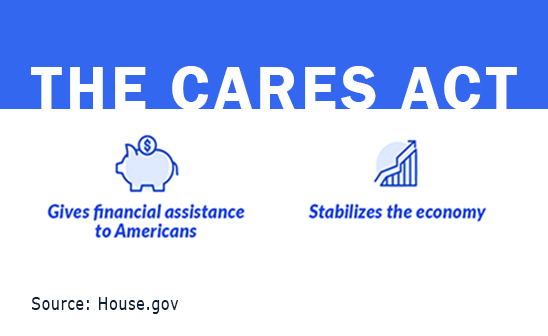Filter


Medicaid Expansion Opened a New Door for Disabled Blacks, Hispanics
The Medicaid expansion in 41 states that began a decade ago has helped low-income workers in numerous ways. Millions have gained health insurance for the first time under the program, which saves lives, stabilizes family finances, and adds a second layer of insurance to poor retirees’ Medicare coverage. The expansion has also benefited the disabled, and particularly people of color, new research finds. This is an important finding for Blacks, Hispanics, and Native Americans, who have higher levels of disability and poverty, which federal disability benefits and cash payments under Supplemental Security Income (SSI) were designed to alleviate. Expanding Medicaid so that it covers more lower-income workers has had a dramatic impact on the SSI and disability programs – in…
August 28, 2024
Cap on Retirees’ Part D Spending May Push Up Premiums
2025 will be a banner year for retirees. In January, a hard $2,000 cap on how much they spend out of their own pockets for medications kicks in. Retirees should welcome the new, much lower spending limit, which will protect them from extraordinary costs, especially if they develop an illness that requires an expensive medication like the rheumatoid arthritis drug Humira or the cancer drug Revlimid. But the monthly premiums on stand-alone Part D plans could cause some sticker shock. The premiums, which average $43, increase modestly in a typical year. But 2025 looks different because the Inflation Reduction Act of 2022 that reduced retirees’ out-of-pocket spending will also require insurance companies to pick up more of the total cost of…
August 22, 2024
Reducing Disability Program’s Earnings Limit is Tricky
The purpose of federal disability benefits is to provide financial support to people who are impaired and can’t earn a living. But if they can work, the government wants to encourage them. Striking the right balance is tricky when setting a limit on how much a beneficiary who works is permitted to earn under the program rules. If it’s too low, for example, some people with disabilities might work fewer hours or stop working altogether to get or keep the disability benefit. But a low limit might have the opposite effect if fairly productive workers with moderate disabilities stay in the labor force because there is such a low ceiling on what they’re permitted to earn to supplement the sma…
August 20, 2024
U.S. Workers Lack Clarity on Financial Goals, Strategies
The minority of Americans who have a financial adviser say they feel pretty good about where they are. It’s everyone else who is largely dissatisfied with their finances. Among the workers and retirees who consult a financial adviser, two out of three describe themselves as financially secure, and the others are presumably working on it. Only one of three people who do not use an adviser are feeling secure, according to Northwestern Mutual’s January survey of more than 4,500 adults over age 18. About 80 percent of those with an adviser also have a plan for how they will pay off debt, whether members of Gen Y and Gen Z with student loans or baby boomers with a mortgage. Only…
August 15, 2024
Federal COVID Aid Showed What Social Policies Can Do
For all the suffering the pandemic caused, it also showcased what federal social programs can do to improve disadvantaged people’s lives. The assistance passed by Congress – all of it temporary – fell short of the ambitious New Deal spending of the 1930s but was more generous than the Great Recession bailout, much of which went to teetering financial institutions rather than individuals. As the pandemic has waned, researchers are assessing an array of policies, including but not limited to relief checks deposited directly into bank accounts, automatic renewal of Medicaid eligibility, and a more generous child tax credit. This blog has already featured research analyzing these COVID-era programs. But it’s worth taking a step back and thinking about t…
August 13, 2024
Despite Medicare, 1 in 5 Retirees Have Medical Debt
Two people in my family who are independent contractors and lack employer health insurance happen to be turning 65 this year and will finally be eligible for Medicare. Hallelujah! A report by KFF, the health care research and news organization, shows why Medicare eligibility is a milestone: 22 percent of people over 65 are paying off debt incurred for routine medical tests, doctors and dental care. While that’s a lot, it’s half as much as the share of older workers paying off medical debt. Retirees are somewhat protected from piling up debt for two reasons, said Alex Cottrill, a KFF policy analyst. Medicare coverage is nearly universal, and retirees usually have an Advantage Plan, Medigap, Medicaid, or a former employer’s…
August 8, 2024
Yes, You Can be Trained to Detect Imposter Scams
It is not difficult to find people who have received a fake email claiming to be from the government or a retailer asking them to clear up a problem with their Social Security number, tax filing, or recent purchase. The scammers behind these emails are after personal information or just want the recipients to send money to clear up the issue. But people can be trained to resist this online fraud. All they need is a little help recognizing some of the common tricks scammers use, by looking for fake URLs – say, amazon.com.tv – or hovering over a link to see where it leads before accidentally clicking into a fraudulent website. In a new study, researchers found that t…
August 6, 2024
Financial Survival: Two Steps Forward, One Back
Hard work isn’t always enough. For three decades, two families – the Neumanns and the Stanleys, one White, one Black – fought hard but failed to regain the financial security they had before being laid off from their good manufacturing jobs with benefits. A powerful and heartbreaking PBS Frontline documentary that aired last week followed them from 1991 until earlier this year, as they moved from one low-paying job to the next, always striving for incremental improvements in their living standards. The timing of this documentary seems particularly relevant in a U.S. election year in which inflation and rising inequality are central concerns for millions of voters. The two Milwaukee families allowed the reporters to capture intimate portraits not only of…
August 1, 2024
LGBTQ+ Community’s Homeownership Rate is Low
Black Americans’ homeownership is dramatically lower than it is for Whites, and one reason is discrimination. This also seems to be the case for the LGBTQ+ community, a new study indicates. About half of LGBTQ+ adults said in a survey that they are homeowners. Nearly three out of four who are not LGBTQ+ are homeowners. Why does this matter? As workers build wealth to prepare for their eventual retirement, the equity in their homes is usually their largest store of wealth – and worth more than their retirement accounts. Lower homeownership puts the LGBTQ+ community at a distinct disadvantage. The study, by the Federal Reserve Bank of St. Louis, found that the homeownership gap was significant even when the researchers…
July 30, 2024
How Much Does Inflation Affect Retirees?
For several years before the pandemic, everyone became complacent about an inflation rate hovering reliably around 2 percent. We were jolted from our torpor by the COVID spike in inflation to nearly 9 percent. Although inflation has come down sharply, the 3 percent rise over the past year is still above pre-pandemic levels. Higher prices remain Americans’ primary concern about the economy. But a new RAND study has good news, at least for some retirees: inflation’s financial hit to their purchasing power is muted. The main reason is that Social Security, the largest single source of a typical retiree’s income, is – in contrast to workers’ paychecks – automatically adjusted every year for inflation. In 2023, the benefit checks…
July 25, 2024
Long-ago Federal Benefit for Boomers in College Paid Off
In the late 1960s and 1970s, the U.S. Social Security Administration subsidized college expenses for young adults with deceased, disabled or retired parents who were receiving dependent benefits. The other requirements were that they were full-time students and remained single while they were in school. The baby boomers who participated in that program, which ended decades ago, have retired or are about to. With more than 40 years of work under their belts, RAND researchers looked back over their careers to see whether the financial support for pursuing a degree had a material effect on their lives. And they found that it did. The boomers in the study with a deceased father who were eligible for the student benefit earned…
July 23, 2024
Young Adults: the Search for Affordable Houses
One in four 20-somethings in the Boston metropolitan area said in a recent survey that they are planning to quit urban life. Their biggest reason: high housing costs. South Carolina, on the other hand, is booming. It inched past Florida last year as the fastest-growing state. Unassuming Delaware is also growing rapidly. And it is no coincidence that houses in these two states are among the most affordable in the country, according to a state-by-state analysis. “With a cost of living that is 11.5% lower than the national average, people can move to the Palmetto State and see their housing dollars go a lot farther,” South Carolina’s Office of Employment and Workforce boasts on its website. The state reported strong…















